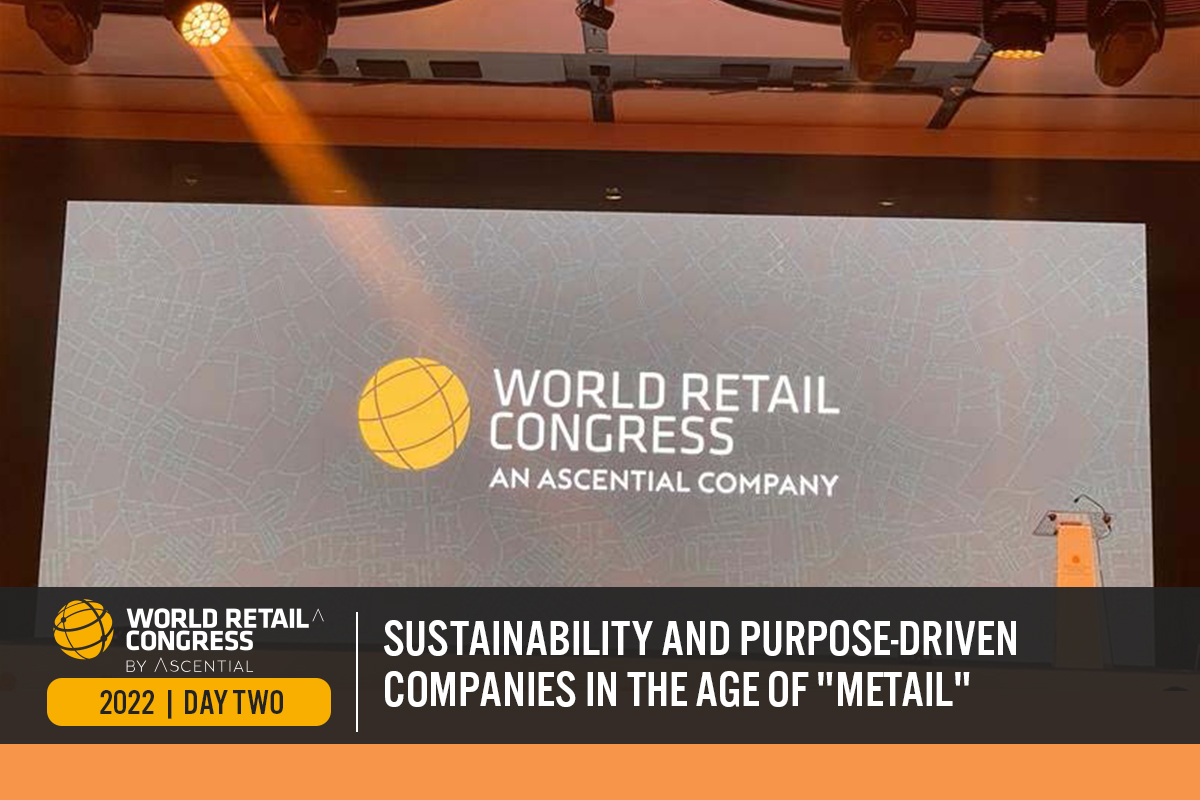
Nitheesh NH
Introduction
The Coresight Research team is attending and participating in this year’s World Retail Congress, held on April 5–7, 2022, in Rome, Italy. The event features retail leaders and industry experts from across the globe and is being held in person for the first time since 2019. In this report, we present our top insights from day two of the show on April 6, 2022.World Retail Congress 2022 Day Two: Coresight Research Insights
Consumer Power Amid Rapid Technological Change Consumers began to drive the direction of retail with the advent of the smartphone, which put a high-performance computer with communication capabilities into almost every consumer’s hands, according to Shimona Mehta, Managing Director, EMEA, at Shopify—and the necessities of the pandemic compressed 10 years of digital growth into three months. The pandemic added 50–100 million new digital shoppers, including Mehta’s mother. The development of new channels continues to evolve at a rapid rate: E-commerce has now come to TikTok, a platform that did not even exist six years ago, as well as to the metaverse and NFTs, which were considered outside the mainstream as recently as three years ago. How should retailers respond to this rapid pace of technological change? Mehta advised that retailers experiment to discover which channels and technologies, such as social commerce and augmented or virtual reality, work for their customers. She recommended three steps for retailers to get started: start now; aim to own, rather than “rent,” the customer; and embrace technology platforms that can offer stability during their development. [caption id="attachment_145169" align="aligncenter" width="700"]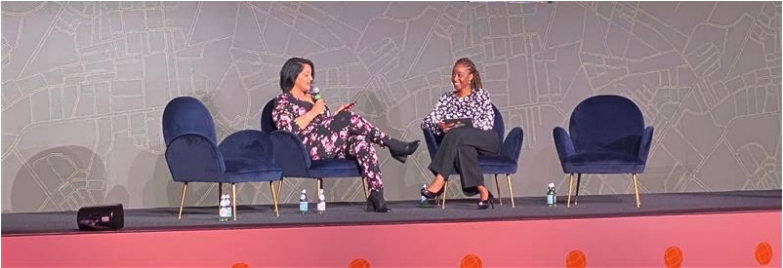 Shimona Mehta, Managing Director, EMEA, Shopify (left), and Lovenda Vincenzi, MC
Shimona Mehta, Managing Director, EMEA, Shopify (left), and Lovenda Vincenzi, MCSource: Coresight Research[/caption] Outcompeting Online Rivals Through Service Consumer electronics companies face a perfect storm of headwinds: rising costs, heightened competition, structural shifts, increased consumer spending on experiences at the expense of goods, and the emergence of e-commerce giants. As a result, a larger number of vendors are competing for a smaller pie, argued Alex Baldock, CEO at Currys plc (formerly Dixons Carphone plc). In addition, consumers have become used to greater convenience in other sectors, such as ridesharing and next-day shipping, and now bring these expectations to consumer electronics. Despite these challenges, Currys has persevered and thrived by offering its in-person service to consumers, who find technology exciting but often confusing and expensive. Currys offers help to its customers in the form of capable and committed staff and an easy shopping experience, and thus works to create customers for life, according to Baldock. One of the retail basics Currys employs is investing in price by matching its competitors’ prices—and since online prices are driven by an algorithm, they are easy to beat. Further widening the service gap versus its online competitors, the company offers a 24/7 support hotline, which has quadrupled conversion and increased average order value by 40%, according to Baldock. The service offering further includes financing, setup and extending the lifetime of devices, plus the benefits accrued from being a legacy provider, which endears the company to its customers. [caption id="attachment_145170" align="aligncenter" width="700"]
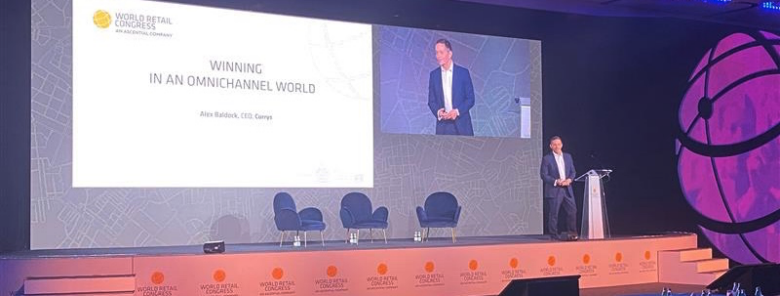 Alex Baldock, Currys plc
Alex Baldock, Currys plcSource: Coresight Research[/caption] Developing Supply Chains To Level the Playing Field and Drive Sustainability Shekar Natarajan, American Eagle’s Chief Supply Chain Officer, came to the conclusion that delivery in US retail was headed in the wrong direction, with families receiving 10–15 boxes on their doorstep daily. Whereas large retailers and e-commerce retailers were able to build efficient distribution networks, smaller retailers faced a huge disadvantage in terms of the cost and efficiency of logistics execution—an uneven playing field. American Eagle has made two recent supply-chain acquisitions, which together form a logistics network that is more efficient and sustainable, and offers lower-cost and faster delivery, leveling the playing field for these smaller participants. In December 2021, American Eagle completed the acquisition of Quiet Logistics, which operates state-of-the-art fulfillment centers, serving more than 50 direct-to-consumer and omnichannel brands. In August 2021, the company acquired AirTerra, which aggregates packages from multiple senders to obtain more favorable pricing. Aggregating shipments means less consumption of fossil fuels, offering cost savings and boosting sustainability. [caption id="attachment_145172" align="aligncenter" width="700"]
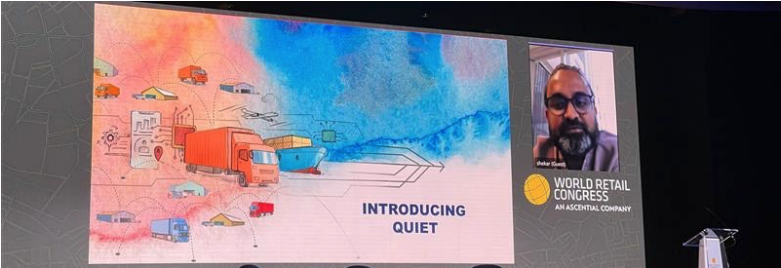 Shekar Natarajan, Chief Supply Chain Officer at American Eagle
Shekar Natarajan, Chief Supply Chain Officer at American EagleSource: Coresight Research[/caption] Moving Beyond “Doing Less” Toward Genuine Sustainability The World Retail Congress invited Paul Polman, co-author of the book “Net Positive,” to deliver this year’s annual lecture. In an inspiring speech, Polman called upon businesses to lead sustainability efforts, and urged the food and fashion industries to take responsibility for their negative impacts. The food industry has the largest environmental footprint, according to Polman, accounting for 70% of global fresh water use and 70% of deforestation. Meanwhile, the cost of natural resources destroyed by the fashion industry is estimated at $500 billion to date. Polman argued that human transformation is at the heart of company transformation, and it is only when companies transform that systems can transform. According to Polman, we are seven or eight years away from creating irreversible damage to the planet, and it is no longer enough to simply push for “less” carbon emissions or deforestation—and the responsibility lies with businesses to lead the change because politicians and NGOs are not doing enough. Polman called for new collaborative partnerships to address sustainability issues and a scaling-up of collective action. [caption id="attachment_145173" align="aligncenter" width="700"]
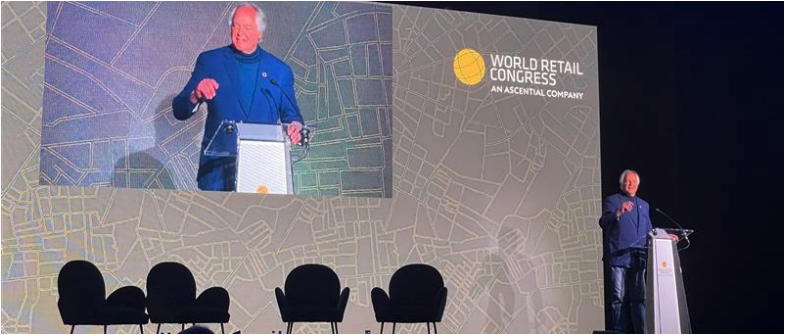 Paul Polman, Co-author of “Net Positive”
Paul Polman, Co-author of “Net Positive”Source: Coresight Research[/caption] Creating Memorable Brand Identity with Scent In an innovative approach to building brand identity, executives from Integra Fragrances set out the argument for brands to build their own “scent identity.” Francesca Piana, Head of Marketing & Communication, defined scent identity as a new brand element that appeals to olfaction, just as a visual logo appeals to sight and a jingle appeals to hearing. According to the executives, 75% of our daily emotions are triggered by smell, and our olfactory memory is the widest and most acute memory of our brain. The executives cited a 1991 Nike shoe study performed by scientists Hirsch and Gay. The study placed the exact same shoes in two different rooms, except the shoes in “room B” possessed a pleasant scent and the shoes in “room A” did not. In the study, 84% of respondents reported that the shoes in room B were of better quality than the shoes and room A, and were willing to spend more than $10 extra to purchase them. Integra Fragrances works with brands to create their own scent identity to trigger an emotional response from consumers when they smell a brand’s product, driving a deeper connection with a brand’s identity. [caption id="attachment_145174" align="aligncenter" width="700"]
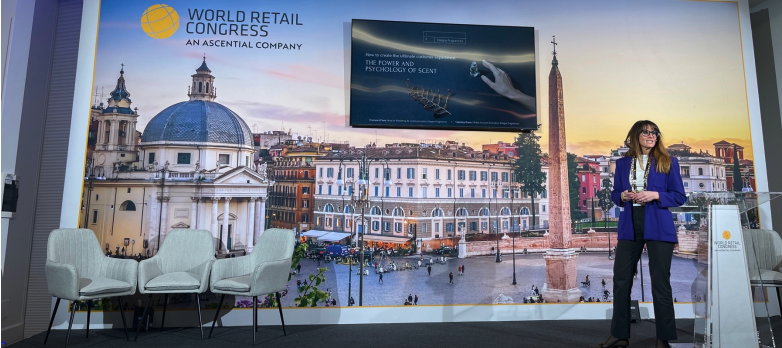 Francesca Piana, Head of Marketing & Communication at Integra Fragrances
Francesca Piana, Head of Marketing & Communication at Integra FragrancesSource: Coresight Research[/caption] The Fundamental Principles of Creating a Purpose-Driven Company Purpose was one of the main themes discussed on day two of the World Retail Congress. According to Bobby Jones, co-author of “Good is the New Cool,” three key shifts are affecting modern companies. The first is the rise of the conscious consumer. Jones stated that consumers are four times more likely to purchase from brands with a strong purpose; five times more likely to champion a company with a strong purpose and recommend it to friends and family; and over four times more likely to trust a company with a strong purpose. The second is the rise of the activist employee. Employees are now 50% more likely to voice objections to management than they were a year ago, and 62% of employees believe they have the power to force corporations to change, according to Jones. The third is the affect of “impact investors.” The ESG index funds hit $100 trillion in funding in 2021, according to Investor Daily, as profits and purpose are becoming “inextricably linked,” Jones explained. Jones defined purpose as “an aspirational reason for being which inspires action that benefits shareholders, stakeholders and local and global societies.” Jones presented his strategic pillars for building a purpose driven company, of which we selected the following three key pillars:
- Purpose must progress from the inside out. Jones quoted Jayson Mayden of Adidas: “the first product you create is your culture, and the first consumer is your employee base.”
- Purpose requires choosing your shields and swords. According to Jones, shields are changes that retailers and brands make to protect themselves from external criticisms and challenges, while swords “are your crusaders.” Swords are the fundamental values that a retailer or brand stands for in the marketplace, inviting consumers and investors to stand alongside them.
- Purpose is putting your money where your mission is. Jones explained that there will be times when a retailer or brand must sacrifice money in the short term to stay true to their purpose, which will ultimately deliver longer-term success.
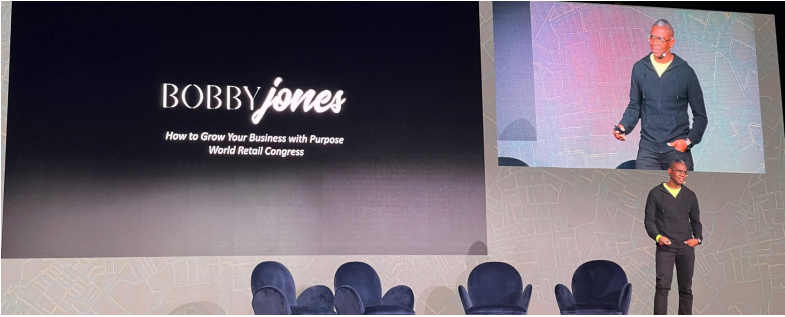 Bobby Jones, co-author of ”Good Is The New Cool”
Bobby Jones, co-author of ”Good Is The New Cool”Source: Coresight Research[/caption] Jones cautioned that purpose is not a cureall: Retailers still need great products, great prices and great marketing. For-profit businesses need both commercial and societal values. However, purpose speaks to all stakeholders, employees, customers and investors as it underpins the impact a firm and its people want to make in the world, and supports collaborative efforts where collective action can make a difference. “Metail”: Absolute Power in the Hands of the Consumer Joel Bines, Managing Director at AlixPartners and author of “The Metail Economy,” started his session by saying retail hasn’t changed much in the nearly 2000 years since what some consider the first shopping mall, Trajan’s Forum, was erected in 112 CE in Rome. Bines argued that traditionally, retailers chose products and shoppers bought them. By 2010, however, new technology had dramatically increased consumers’ power to shape the market. Now, consumers’ access to everything—retailers, information and one another—has created a new paradigm that Bines calls “the metail economy.” To navigate this new landscape and re-establish relationships with consumers, Bines outlines six strategies for retailers:
- Cost—Give customers a steal. Competing on cost is essential, but not enough in itself.
- Convenience—Make it easy for customers. Convenience for consumers, not retailers, must be the priority, although it can be mutually beneficial.
- Category Expertise—Showcase product and category knowledge. Expertise is now rare and therefore prized by customers. Customers respect retailers that can answer every question, so retailers can’t afford to underinvest in front-line employees.
- Customization—Provide a made-for-me feeling. Retailers must provide the impression of a joint product development journey.
- Curation—Create a chosen-for-me feeling. This can’t be faked, particularly at scale, and retailers need to be passionate and obsessive about curation.
- Community—Make customers feel welcome. This takes a long time to build but a second to destroy; retailers must have a relentless focus on building and nurturing their community.
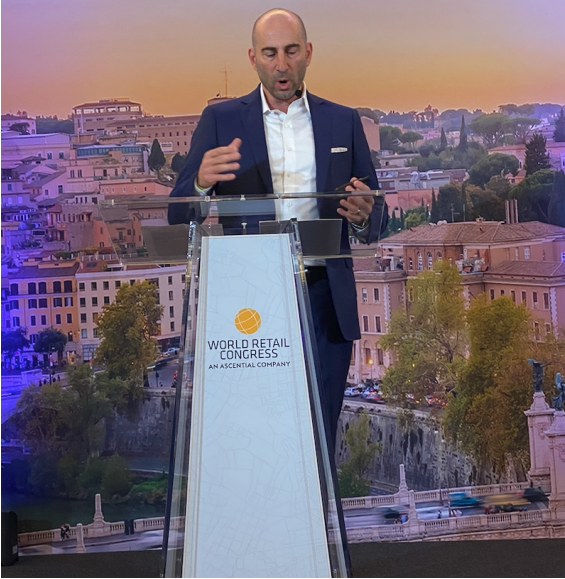 Joel Bines, Managing Director at AlixPartners and co-author of “The Metail Economy”
Joel Bines, Managing Director at AlixPartners and co-author of “The Metail Economy”Source: Coresight Research[/caption]